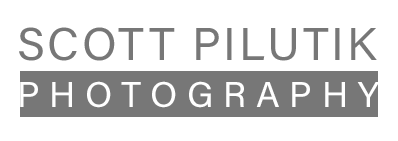On Photography
I went to art school because I could draw and thought that’s what I wanted to do for a living, but it took less than a semester to realize that drawing was too plodding and disciplined (and my skills only mediocre) to serve as a means to expressing myself artistically. At Purchase, photography was treated as seriously as any other artistic discipline, and its faculty surehanded. Ideas big and small were argued, and you were measured against artists who took themselves seriously.
That competitive approach didn't work for everyone but it worked for me and I took a lot from those years in terms of understanding how to "see" in formalist terms, i.e., color, composition, and so on. The discussion focused on what was in the frame, just as a painter might account for everything on the canvas.
To this day I cling to conceits I'd developed then about photography. One was simply that you should look at a lot of photographs if you want to succeed as a photographer primarily because the chances range from excellent to certain that in your earliest days you're going to repeat a lot of history. Whatever you make, someone will have probably made it better. Tripping through that history is unavoidable but confronting those detours--accepting, rejecting, refining choices--are the steps to defining yourself. Your choices are who you are.
Photography has changed quite a bit in the last few decades, and I’m constantly examining my relationship to it alongside those changes. I spent about eight years after college working in various NYC studios shooting mostly tabletop still-life for advertising and editorial clients, just as digital options were creeping in and radically changing the landscape. Shooting on film requires more time, more precision, darkrooms, and bike messengers. Mistakes required costly reshoots—Photoshop wasn’t yet a thing. The incoming changes allowed art directors to rely on commercial photographers less and less, and consequently photographers were paid less and less, leading to my eventual exit from the field.
The internet brought even more drastic changes, both the making and perhaps more so in how we experience photographs culturally. We’re more awash in them, and consequently more oblivious to questions of ownership. But the more crucial change is how we make photographs—with each evolution, improved smartphones melt the barriers to entry. To be sure, there remain perhaps insurmountable quality hurdles., but the differences between a top shelf smartphone and a Nikon are becoming less easily observed, to most eyes anyway.
Consequently, there are far more people able to credibly identify as photographers, which paradoxically raises the bar for everyone while cheapening the value of the discipline. If we can all do a decent enough job, how hard can it be? I’ve embraced these technological changes, updating my smartphone with each iteration and investing in a mirrorless Fuji setup. For the moment, I feel fairly empowered.
But thoughts of gear and technology don’t occur to me when I’m making photographs. I’m merely looking through a lens and arranging things inside the rectangle, hoping to make something new or improve on ideas I’m still working out. It’s an intensely personal, escapist exercise of defining and refining your worldview through this handheld machine, chasing ideas that can’t be expressed in words. If others relate positively to the work, and I’ve been relatively lucky to find that they sometimes do, it’s a gratifying side benefit.
